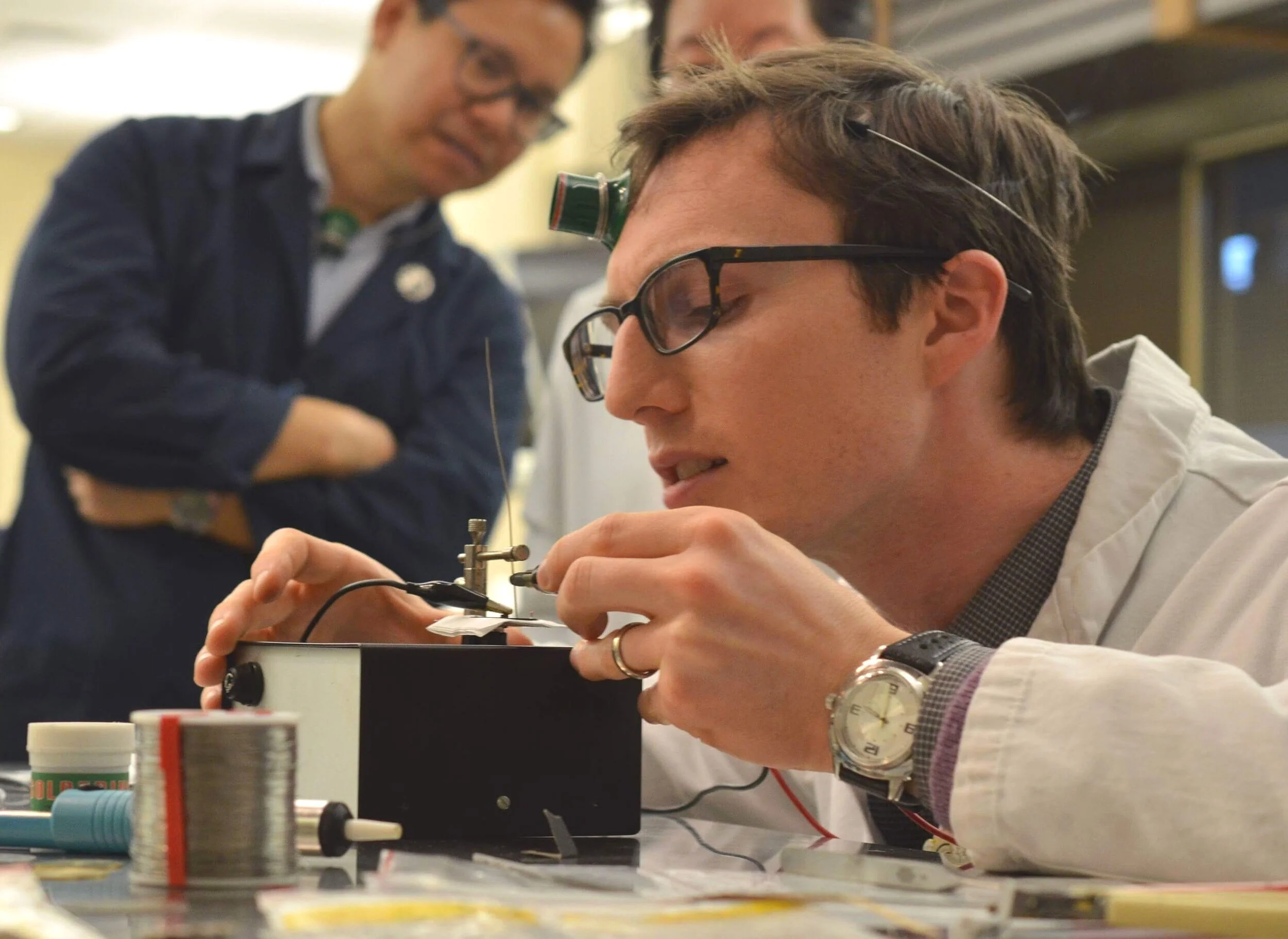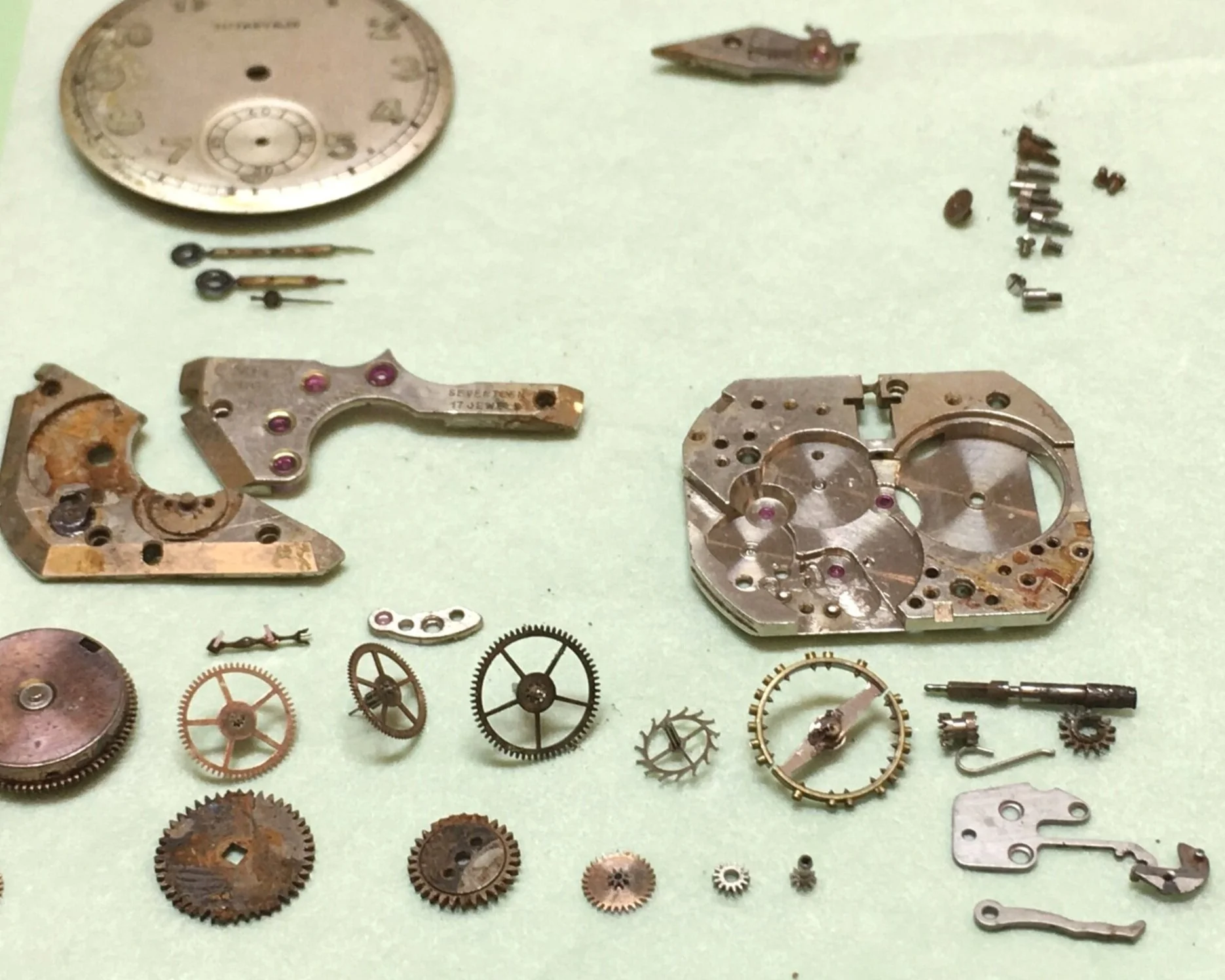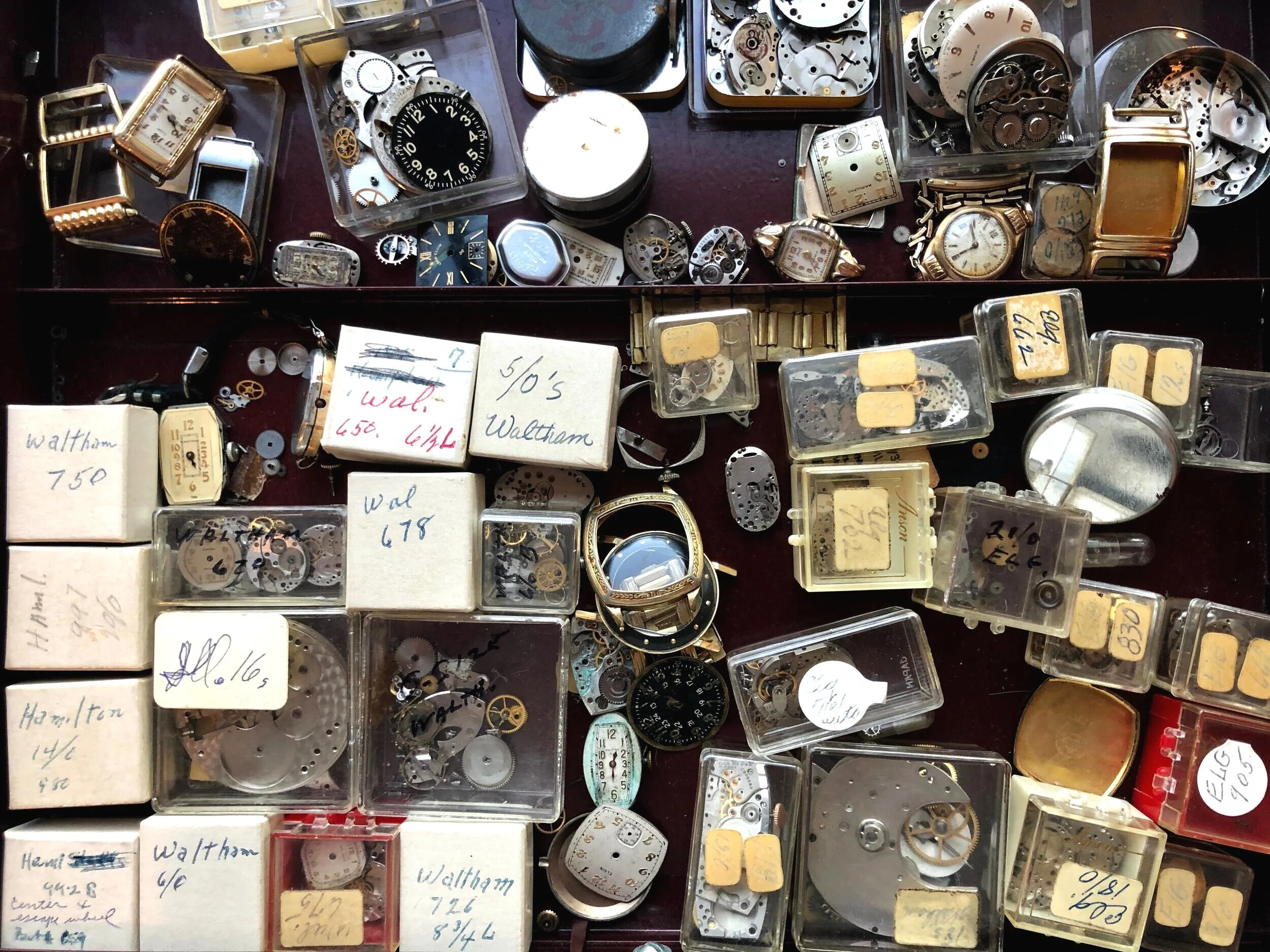“Why are you like this?”
“Why are you like this?” Our instructor asked everyone on our first day of watchmaking school. We all needed an ice breaker like that because, well, most watchmakers are awkward. About a dozen of us showed up that first day, and not everyone would finish two years later. The class ranged in age from 19 to over 60, most of us transitioning from other careers. Each person had their own story, but we all had at least two things in common: we loved watches, and we loved taking things apart.
The fact is, it’s not common to meet a watchmaker. It’s a dying trade, by which I mean that the workforce is ageing out. In the 1970s and 80s, the advent of battery-powered watches threatened the traditional watchmaking industry, (a story for another time) and interest in repair techniques waned. But in the past decade mechanical watches have surged in popularity, along with a demand for skilled workers to maintain them.
When I left my career in tech sales my boss actually didn’t believe me because in his mind watches were obsolete. He thought I was going to work for a competitor. “You’re going to be a….watch repair…guy? Really? Tell me what’s really going on.” He’s actually one of the few software engineers I’ve met who ISN’T a watch collector.
Fast forward five years and my current employer sells one of the hottest commodities on the planet—a certain watch brand which we don’t need to mention here. We can’t keep up with demand. Most of the watches never even stick around long enough to see the display case. And every day, people bring me literal bags of watches for repair, meaning the watchmaking department takes in more watches than are sold in our store. How’s that for obsolete?
So why am I like this? I love to work with my hands and troubleshoot mechanical problems. I’m also fascinated by the history of objects. The other thing watchmakers have in common—and I am extremely guilty of this—is that we love to collect old stuff. Old tools? Heck yeah. Tiny containers of watch parts? Yes please. Tall cabinets filled with old tools and watch parts? Shut up and take my money! It doesn’t help that my wife is an enabler (her addiction is fabric and craft supplies). And watchmakers never throw anything away, so if you happen across an old watchmakers estate sale, it is usually a gold mine.
Over the years I’ve met scores of enthusiasts and hobbyists who enjoy an insomnia-fueled late night eBay session as much as I do. They love watches and sometimes even perform their own small repairs. However, they have made the fiscally responsible choice of keeping their day jobs. We are similar in many ways, but they don’t have the madness to commit their lives to watch repair. And that’s ok, because they make excellent clients. This blog is for them.




